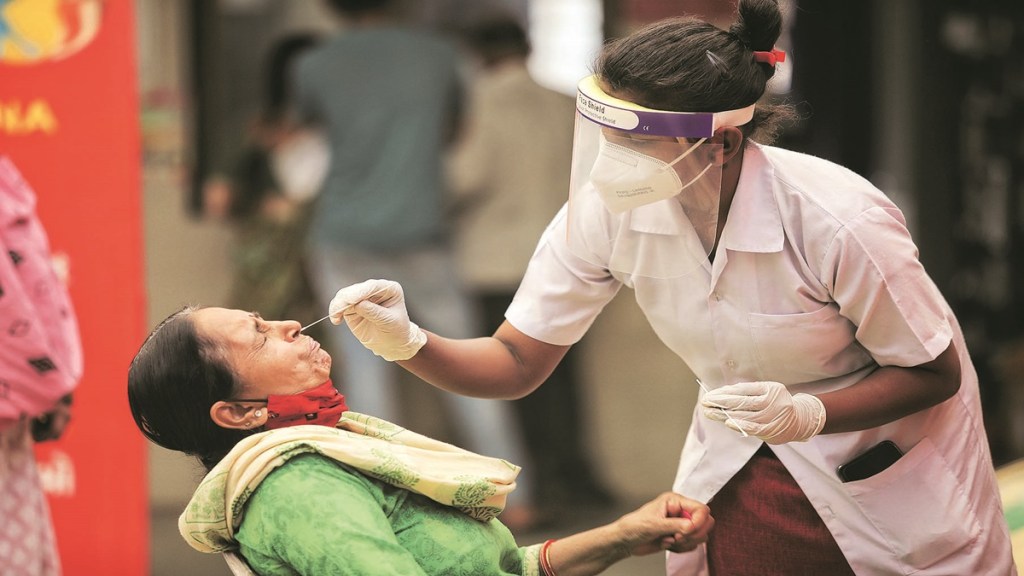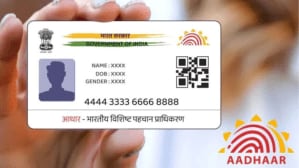By Soma Das
Have we entered the era of too much data and too little wisdom? That’s the sense one gets in Private and Controversial, a book edited by Smriti Parsheera that warns us against dire unforeseen consequences if all our health data is consolidated at one source by the state without a law that protects the data and rights of citizens effectively. As India builds its grand digital health infrastructure, different subject experts write on varied themes in the book to explore critical fault lines, where tension lurks between public health and privacy rights, and ask us uncomfortable questions about our readiness to deal with our datafied bodies and minds.
A datafied life, fragile truth… Covid-19 turned out to be the world’s first data-driven pandemic, in which data shaped our policies, our understanding of the health crisis, and our language, peppered with expressions like ‘flattening the curve’, ‘doubling rate’. Beneath a deluge of data projects by governments, the private and not-for-profit sectors, the source of most such data remained the state, a chapter tells us. Even as data is being treated as equal to knowing, is our understanding of the pandemic correct and complete? Do we know how many people died post-vaccination? How did Covid-19 cause deaths across socioeconomic groups? What happened to non-Covid-19 medical cases? As data swelled, so did misinformation, and mistrust in data.
Also read: Meet Kavya Maran, SunRisers Hyderabad owner; Know about her background, net worth and more
The authors reckon that what kind of data gets captured depends on who are the actors in deciding, maintaining, and accessing such data. And if the state is the sole actor, the stories we are told are probably skewed. Data doesn’t equal truth, and if we base our truths on fragments of data, our truths remain fragile.
Another chapter scans how Covid-19 became an excuse to pry too deep for governments and employers. Along with contact tracing and implementing quarantine in the name of ensuring safety, desperate measures like pasting posters outside the homes of infected, and stamping the hands of those quarantined were normalised during the emergency, without assessing whether this level of intrusion into people’s privacy is yielding commensurate public health benefits. The problem with these measures is that most were not backed by law, but once part of the government toolkit, they are likely to be retrieved for use in the next emergency.
As the National Digital Health Mission (NDHM) brings alive the digital health architecture in India, the book warns against rushing into a design and implementation without assessing the risks associated. Citing how such initiatives have got stuck in the UK, US, and elsewhere in privacy-related controversies, a chapter urges building a rights-based framework in NDHM instead of a consent-based architecture, which means the responsibility for protecting the data lies with the data controller. That’s because ‘informed consent’ is more often an illusion of choice than a real one. This is mainly for two reasons—can individuals really predict today what harm may befall them if their health data goes public; second, when the roll-out is national, and in effect, services start getting denied to you because you don’t have the card, do you really have a choice to opt-out? Case in point—Aadhaar.
Another chapter explores the shocking absence of a code of ethics around maintaining privacy for ASHAs, India’s community health workforce who have access to a range of sensitive information around people suffering from TB, HIV, their history on abortions and even sexual practices. Yet another chapter probes how the trust of patients stand eroded in institutions after corporatisation of healthcare has de-personalised the doctor-patient relationship.
A chapter interrogates the increasing incidence of surgical removal of the uterus in India, including for shocking reasons like retaining employment among agricultural workers; exponential increase in C-Section surgeries, touted as lifestyle choices of too ‘posh to push’ types, and the highly controversial ‘surrogacy laws’ where the government is confusing science with morality.
Another chapter shows how disclosure of HIV-positive status has caused the denial of work and medical services; social stigmatisation; and tragedies, including violent deaths in the past. It then comes as little surprise, that when states started mandating submission of Aadhaar for accessing ‘anti-retroviral treatment’, HIV patients started opting out of these programmes fearing that such disclosures may lead to revealing a health condition with a stigma, their sexual orientation, and even drug use history.
Another chapter warns that linking all databases that existed in silos—such as path labs, hospitals, and insurance providers—combined with increased computing power could mean unprecedented sway of the state over citizens. Do we have enough safeguards to ensure that tomorrow this data which may include alcohol intake history, pregnancy or abortion-related information or mental health data will not be used by authoritarian governments for maligning political opponents or used to discriminate sections of populations based on their religion, sexual orientation or any other group vulnerabilities?
Experiments show that the very act of being watched over called ‘panopticon’ by the state may change behaviours. For instance, the thought of leaving a data trail may dissuade someone from seeking mental health assistance. This attitude of only looking at the gains of consolidating data at one source without assessing risks does not augur well for citizens, authors assert.
Smart wearables and health apps have bypassed the doctor from the medical equation, by promoting self-tracking, turning bodies into measurable machines, reveals a chapter. In this ‘FMCGisation’ of health-tracking, the main concern is that data collection gives an illusion of privacy to the individual, as she is alone with her gadget in her room, but the data is seldom used only for her benefit.
A 2014 US Federal Trade Commission study found 12 personal health apps transmitted data to 76 third parties, and at the end of the study admitted that “they still didn’t know where the information ultimately went”. Another chapter shows that as artificial intelligence (AI) upends all things digital, have we thought over who would be liable if the reason for medical negligence turns out to be a machine?
The book comes at a time when hundreds of tech luminaries globally have written an open letter to AI labs late last month to immediately pause the training of AI systems more powerful than GPT-4 for six months. That’s what the book urges us to do here in the digital health space as well—pause, reflect, refresh and then act with an informed mindset that balances public interest with individual rights.
Even though not a page-turner, the book succeeds commendably in raising some of the most important questions of our data-saturated times, the mindlessness with which we brandish bit-sized data as if that’s the ultimate truth to prove one side of the story. One wishes that some chapters had been more lucidly written and not read like academic papers. After all, a public policy book should be as accessible to the public, as to the policymakers. Interestingly, while Kafka and Orwell play overt cameo roles in the book, Machiavelli lurks underneath the narration. A valiant effort, Private and Controversial, would have surely been ‘controversial’, had it been a little less convoluted.
Private and Controversial: When Public Health and Privacy Meet in India
Smriti Parsheera
HarperCollins
Pp 428, Rs 699
Soma Das is the author of The Reluctant Billionaire and an adviser to multiple agencies in the development space.







